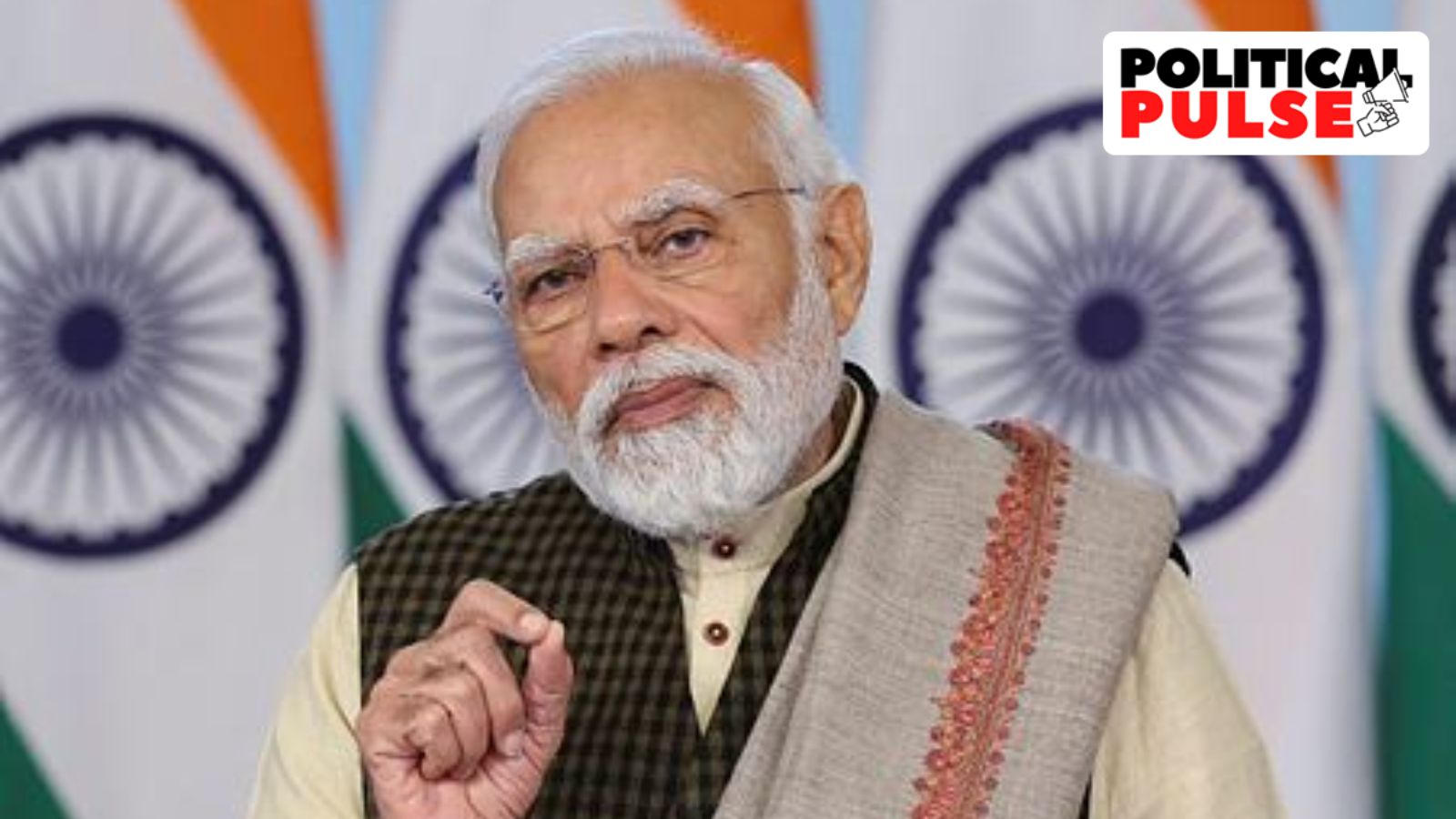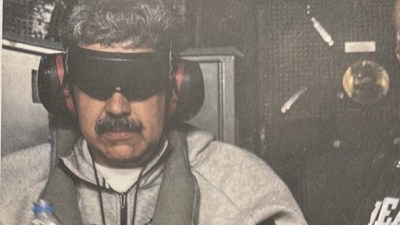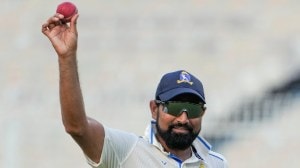
Here are the major talking points from the interview:
Parliament security breach
Modi’s remarks on the Parliament security breach come amid the latest confrontation between the government and the Opposition on the issue. On Thursday, a day after two men with smoke cans jumped into the Lok Sabha chamber from the visitors’ gallery, 14 MPs were suspended – 13 in Lok Sabha and one in Rajya Sabha – for disrupting proceedings. The Opposition parties have stalled proceedings in both Houses, insisting on a statement from Union Home Minister Amit Shah.
“Sansad mein jo ghatna hui, uski gambheerta ko jara bhee kam nahin aankana chaahiye. Isliye Speaker mahoday pooree gambheerta ke saath aavashyak kadam utha rahe hain. Jaanch agencyan sakhtee se jaanch kar rahee hain. Isake peechhe kaun se tatv hain, kya mansoobe hain, isakee gaharaee mein jaana bhee utana hee jarooree hai. Ek man se samaadhaan ke raaste bhee khojane chaahiye. Aise vishayon par vaad-vivaad ya pratirodh se sabhee ko bachana chaahiye,” Modi said in the interview. (“The gravity of the incident that happened in Parliament should not be underestimated. The Speaker is taking the necessary steps with full seriousness. The investigative agencies are probing strictly. It is equally important to uncover the elements and intentions behind this. Solutions should be found with a collective spirit. Everyone should avoid dispute/ squabbling or confrontation on such issues.”)
Article 370
On the Supreme Court’s verdict on Article 370, Modi said: “The Supreme Court has given its imprimatur to the fact that there cannot be two Constitutions in a country. The abrogation of Article 370 was more important for the people of Jammu-Kashmir and Ladakh than any politics. It was necessary for the development of the people and ease of their lives. It was made an issue by a few dynasties due to their political interests. The common man of J&K is neither a part of anyone’s selfish politics, nor does he want to be. Like every citizen of the country, he wants to overcome the troubles of the past and secure the future of his children and his present, without any discrimination.”
“After abrogation of Article 370, both J&K and Ladakh have transformed. Now, cinema halls are operating there. There are no terrorists, there is a tourist fair. There is no stone-pelting, films are being shot there instead. The common Kashmiri family is liking it. Even today, to those who are creating misperception about Article 370 for their own political interests, I will tell them frankly – ab brahmaand ki koi shakti anuchchhed 370 ki vapsi nahin kara sakti (Now no power in the universe can bring back Article 370),” Modi said.
New CMs in Hindi heartland states
On the BJP’s messaging behind its decision to bring relatively new faces as chief ministers in Madhya Pradesh, Chhattisgarh and Rajasthan, Modi said they were all experienced leaders. He said it was unfortunate that while “some name becomes big with some branding, others do not get attention, irrespective of their talent and hard work”.
Story continues below this ad
“It has been the misfortune of our country that among those who create influence in social life through their speeches, intelligence and personality, a large section is stuck in a stale and closed mentality. This is not limited to just the political field, it troubles us in all areas of life. Just like in any sector, if a name becomes big, if someone has branded himself, then others don’t get attention, no matter how talented they are, no matter how hard they work… Unfortunately, for many decades, the media’s focus remained mostly on a few families.”
“Because of this, the talent of the new people could not be discussed. Because of this, some people seem new to you sometimes, but the truth is that they are not new. They have their own long experience and penance (tapasya). BJP is a cadre-based party. No matter how far the workers reach while working at every level of the organisation, the worker within them always remains awake,” Modi said.
Lok Sabha elections
Modi said the Assembly elections busted the myth that the BJP had no support in the states and indicated that the party would register a “historic” verdict in the 2024 elections. “Firstly, this has come just a few months before the Lok Sabha elections; secondly, the mandate has come after UPA turned itself into INDIA,” he said.
“In a way, this was the first test for INDIA, and the public defeated the Opposition alliance miserably. The public completely rejected the politics of instability and selfishness. These results have given a glimpse of the mood of the country. The people have given their mandate for a stable, permanent and dedicated government in the national interest,” he said.
Story continues below this ad
“Apart from this, these elections have also rejected another lie spread by some people. There was a political class which used to say that there is no challenge before the BJP at the national level, but the party is not getting much support in the states. That myth has also been busted. We have not only formed governments in three states, there has been a record increase in BJP’s vote percentage in Telangana too. This shows that the BJP is once again going to register a historic victory in the 2024 elections,” Modi said.
Asked about the slogan “Abki baar, 400 paar” and whether the BJP had set such a seat target for 2024, Modi said: “Any number given by the public has a special basis, there is a meaning behind that number. It has its own importance, and we have to understand this.”
Ram temple in Ayodhya
Asked about the Ram Temple inauguration on January 22, the PM said it was about the arrival of “har ghar Ayodhya, har ghar Ram (Ayodhya in every house, Ram in every house).”
“I am fortunate that I have been invited to participate in this very sacred work and have got the opportunity to go there. For thousands of years, Lord Ram has brought positivity in all our lives… The happiness is not only for Modi. This is an opportunity for the happiness and satisfaction of 140 crore hearts of India. For me, this occasion is about the arrival of ‘har ghar Ayodhya, har ghar Ram‘ (Ayodhya in every house, Ram in every house),” he said.
































